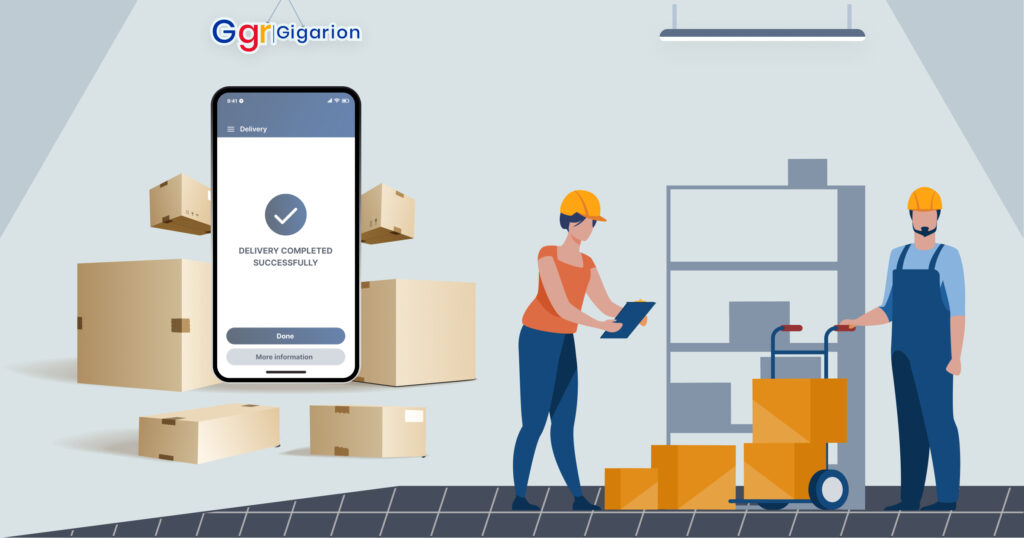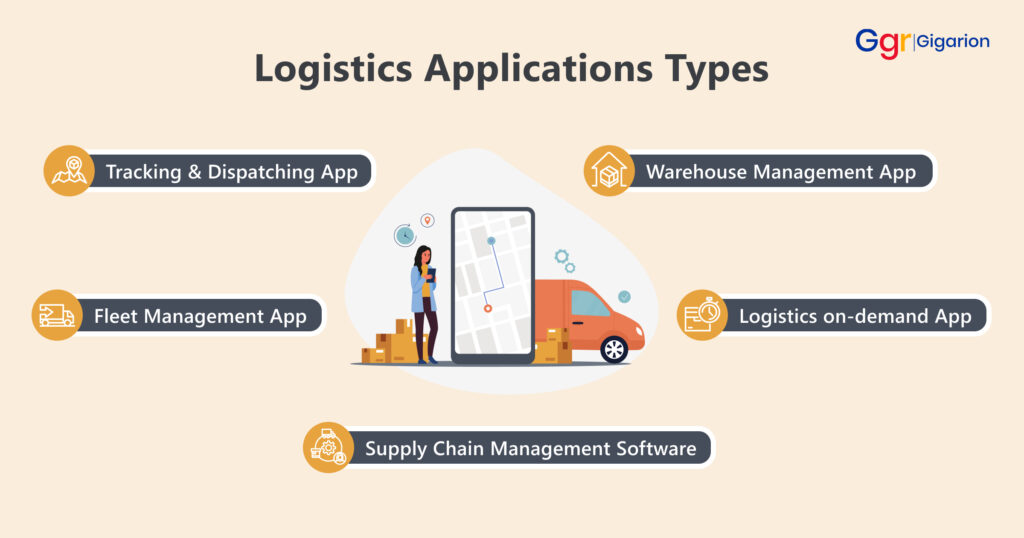The logistics industry is transforming rapidly, influenced by advancements in technology and shifting consumer expectations. As sectors such as retail, manufacturing, healthcare, and more become increasingly reliant on logistics applications, understanding the underlying technologies is crucial for staying competitive. This blog post explores the key technological components of logistics application development and their impact across diverse industries.

The Technological Landscape of Logistics Applications
Logistics applications are powered by a range of technologies that enhance efficiency, visibility, and decision-making. Here are some of the most critical components:
1. Internet of Things (IoT)
IoT devices play a pivotal role in logistics by enabling real-time tracking and monitoring of assets. Sensors embedded in shipping containers, vehicles, and warehouses provide data on location, temperature, humidity, and more. This information allows companies to optimize routes, ensure the integrity of perishable goods, and improve overall supply chain visibility.
2. Artificial Intelligence (AI) and Machine Learning (ML)
AI and ML algorithms analyze vast amounts of data to identify patterns and make predictions. In logistics, these technologies can forecast demand, optimize inventory levels, and improve route planning. For example, predictive analytics can anticipate peak seasons and adjust supply chain strategies, accordingly, reducing costs and enhancing service levels.
3. Blockchain Technology
Blockchain provides a decentralized and secure method for recording transactions across the supply chain. By using blockchain, logistics companies can enhance transparency and traceability, which is especially crucial in industries like pharmaceuticals and food. Smart contracts can automate processes, such as payments and compliance checks, further streamlining operations.
4. Cloud Computing
Cloud-based logistics applications enable real-time collaboration and data sharing among stakeholders. By leveraging cloud infrastructure, businesses can scale their logistics solutions quickly, reduce IT overhead, and access data from anywhere. This flexibility is essential for adapting to changing market conditions and consumer demands.
5. Big Data Analytics
The logistics industry generates vast amounts of data from various sources. Big data analytics tools help companies process this information to extract actionable insights. By analyzing KPIs such as delivery times, costs, and customer feedback, businesses can refine their operations and make data-driven decisions that enhance efficiency.
6. Mobile Applications
Mobile logistics applications empower field workers with real-time access to information, allowing them to manage deliveries, track shipments, and communicate with teams on the go. By incorporating features such as barcode scanning and GPS navigation, these applications streamline operations and improve response times.

Logistics Applications Types
Industries Benefiting from Logistics Applications
1. Retail
Real-time inventory management systems integrated with POS systems help retailers maintain optimal stock levels, reducing overstock and stockouts. Logistics applications enhance order fulfillment processes, ensuring timely deliveries to meet customer expectations.
2. Manufacturing
AI-driven supply chain management platforms analyze production schedules and raw material availability, helping manufacturers optimize workflows and minimize delays. Logistics applications also facilitate just-in-time inventory practices, reducing waste and improving efficiency.
3. Healthcare
IoT-enabled devices monitor the conditions of medical supplies during transport, ensuring compliance with safety regulations and maintaining product integrity. Logistics applications streamline the distribution of pharmaceuticals and medical equipment, which is critical for patient care.
4. Food and Beverage
In the food and beverage sector, maintaining the quality and safety of products is paramount. Logistics applications with temperature monitoring capabilities help ensure that perishable goods are transported under the right conditions, reducing spoilage and waste.
5. E-Commerce
With the rapid growth of online shopping, logistics applications are essential for managing complex supply chains. Features like real-time order tracking and automated fulfillment processes enhance customer experiences and streamline operations.
6. Construction
In the construction industry, logistics applications manage the delivery of materials and equipment to job sites. This ensures that projects stay on schedule and within budget, reducing downtime and improving project management.
7. Energy and Utilities
Logistics applications are crucial for managing the transportation of equipment and resources in the energy sector. They help optimize the delivery of essential supplies and equipment for maintenance and construction projects.
Wrap up
Investing in logistics application development is not merely a technological upgrade; it’s a strategic imperative. By harnessing cutting-edge technologies, logistics companies can enhance operational efficiency, improve customer satisfaction, and gain a significant competitive advantage.
As the logistics landscape continues to evolve, organizations that embrace innovation through effective application development will be better positioned to thrive. Whether you’re considering a complete overhaul of your logistics systems or looking to optimize existing processes, leveraging the right technologies can unlock significant potential for your business. Contact us now for any questions you have about building logistics applications.